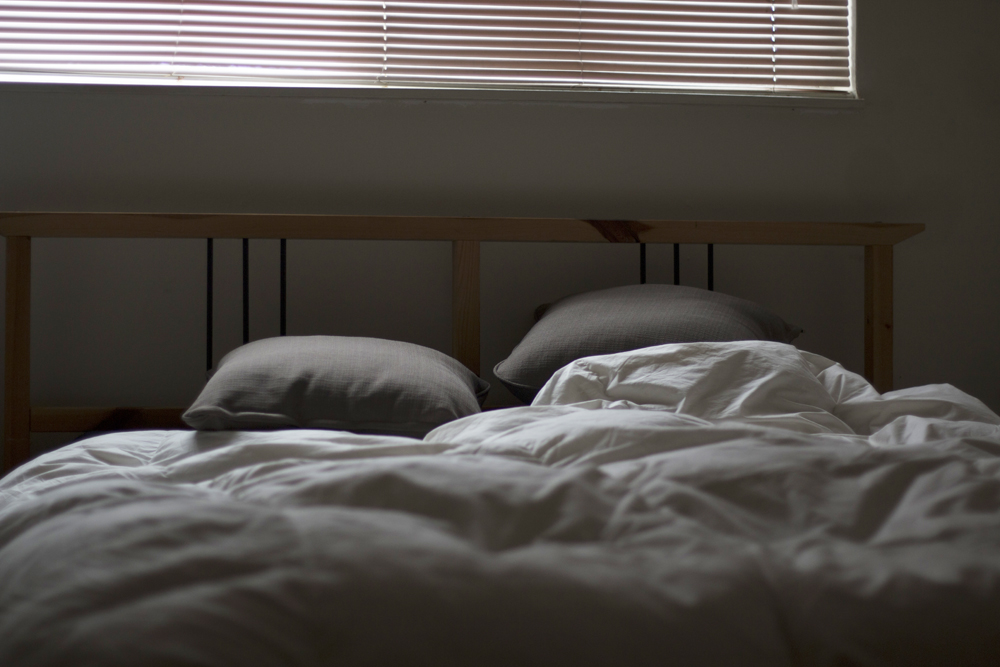How to Budget Better by Budgeting Daily
Are you making this common budgeting mistake? A budget won’t do you much good if you only look at it once a month

Everybody knows you should have a budget. Whether or not you are in the habit of keeping one is a different story.
I used to be anti-budget. I felt like a budget controlled me when I wanted to be the one to control the budget. It was also really frustrating to me that every time I budgeted for the month, it never quite happened the way I had planned. Inevitably I would overspend in some category or the other, plus the money that was budgeted never actually seemed to be in the bank.
After getting married, it was even tougher to keep a budget for obvious reasons. If one person and a budget was difficult, imagine what happened when you added another person to spend the money!
After years of non-budgeting put us further and further into consumer debt, we finally realized that we had to budget or else we would be facing financial disaster. We began to faithfully use a budgeting program, and within a couple of months our money situation was turning around and starting to look really good!
All because of a budget.

But don’t get too excited yet—having a budget is better than not having one, but we were still making a really big budgeting mistake.
The big budget mistake we didn’t know we were making
We sat down together at the beginning of each month and allocated money to each of our different spending categories. We (usually) entered our purchases and bill payments into the budget. But mostly we didn’t look at the budget or think about it much until the next month’s budgeting meeting.
And that was our big mistake.
For some reason, we’ve all been trained to think that a budget should be a monthly thing. We have x amount of dollars coming in this month, and we have x amount for bills, x amount for other categories, and (hopefully) x amount for savings.
But every month as we sat down to review the situation, we realized that not much money was going into savings, because we kept having to rob that category in order to cover overspending in other categories. We also realized we were spending money we didn’t actually have yet. We thought it was there because we budgeted those dollars, but sometimes we spent it before the paycheck deposited into our account. This sometimes resulted in overdraft fees, but usually it was just another dip into savings.
While we were doing much better with our money, we knew we still had a ways to go before we could really call ourselves budgeting masters. Something had to change.
Budget better by budgeting daily
Our budget is no longer set and forget for a month. While we don’t necessarily make changes to it on a daily basis, we are taking care of it every day.
What does daily budgeting look like?
1. Only budget the money you actually have
When we budgeted monthly, but got paid twice a month, we were essentially budgeting money we didn’t have. That’s one of the reasons we often had to dip into savings—the budget said the money was available, but it wasn’t in the checking account yet.
Now, we budget every time a paycheck is deposited—which is more than once a month. We only budget the money that we know is currently in the bank, which means we have to budget for our immediate needs first. Whatever bills are due get precedence, then groceries, then everything else in whatever priority we decide is right. We still budget fun money, but it is the lowest priority if we have too many other, more important, obligations that pay cycle.
It’s amazing how much better we’ve been able to save using this method! We are almost ready to purchase our tickets to Disney because we’re actually able to keep money in savings and it is no longer acting as our “oops” account.
2. Look at your bank account daily
One of the benefits of budgeting on a daily basis is that there are no surprises—or, if there are surprises, you catch them immediately and are then able to redistribute your budgeted funds so that you can cover the surprise.
Sometimes the surprise is that your husband forgot to enter a purchase that you didn’t know he made. Sometimes the surprise is your child coming home with the news that you have to pay for a band rental or school pictures or a field trip that you hadn’t planned on. Sometimes the surprise is a bill in the mail that you weren’t expecting.
For me, the surprises are often those yearly expenses that creep up on you: Amazon Prime, car registration, birthday gifts, or credit card fees.
When you get better and better at budgeting, you will foresee those surprises with more accuracy, but it’s still always great to look daily and make adjustments to the budget as necessary.
You’ll be surprised at just how often it is necessary!
3. Enter expenditures immediately
Part of budgeting is entering expenditures. There are so many cool programs out there to budget with (we use YNAB), and all of them provide a way for you to enter your purchases so you can keep track of the budget. I know YNAB provides a phone app so we can do it right when we check out at the store. You can also schedule expenditures, so whenever I pay bills I schedule them all into YNAB, too.
4. Look at the budgeted amount before spending
This may seem totally obvious, but it’s not something we were in the habit of doing. If you are at the grocery store, you need to know exactly how much money you have budgeted so you don’t overspend. Open up your budget app, make sure you look on your computer before you go shopping, or keep a budgeting notebook in your purse. Whatever works for you. Just make sure you know how much you actually have to spend.
5. When overspending happens, deal with it immediately
The biggest reason people quit a budget is because they think it’s not working if they overspend. But overspending happens every single month because we are not fortune tellers. If you spend more in a category than you budgeted (and you will!), simply move money around from other categories to cover it.
Sure, the overspending may cause you to have to make a sacrifice or two in other budget categories, but it’s better than dipping into savings or having overdraft fees. If you see these things daily, as they are happening, you are in a much better position to make adjustments. Just deal with it and move on.
We’ve only been budgeting like this for a short time, and it has already made a giant difference. We are more thoughtful about purchases, more aware of where our money is going, and we have more money in savings!
- Small Habit: Take care of your budget every day
- Big Difference: More money in the bank, more awareness of spending, financial freedom
This post is part of a Small Habits That Will Make a Big Difference 30 day challenge. To see all of the posts in this series, click here. Or, join the challenge and receive a daily email with a new small habit that can affect your life in a big way.

Join the Small Habits/Big Difference Challenge!
To join, enter your email into the form at the end of this post. You will receive a daily email containing one new small habit.
This post may contain affiliate links, for more information, please see my disclosure.
Take the Challenge Now!

Want to change your life in great ways? Start small! Take the 30 day challenge and start making some big differences in your life today.



